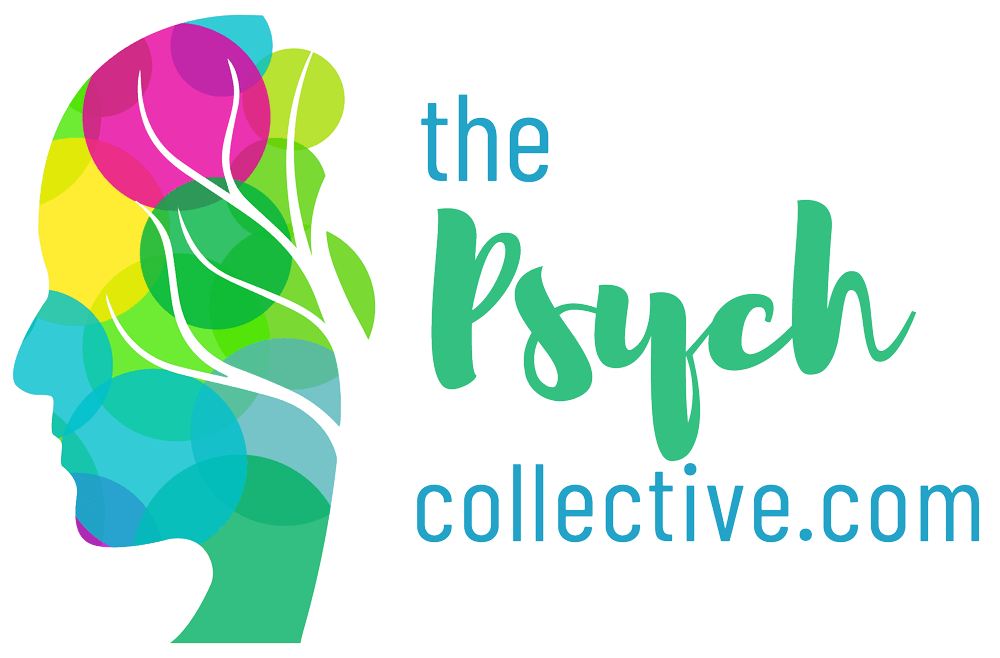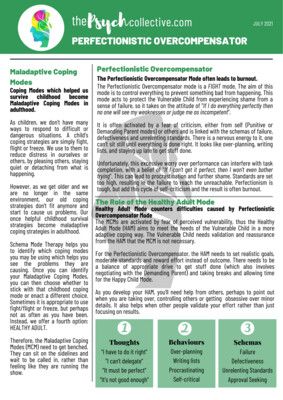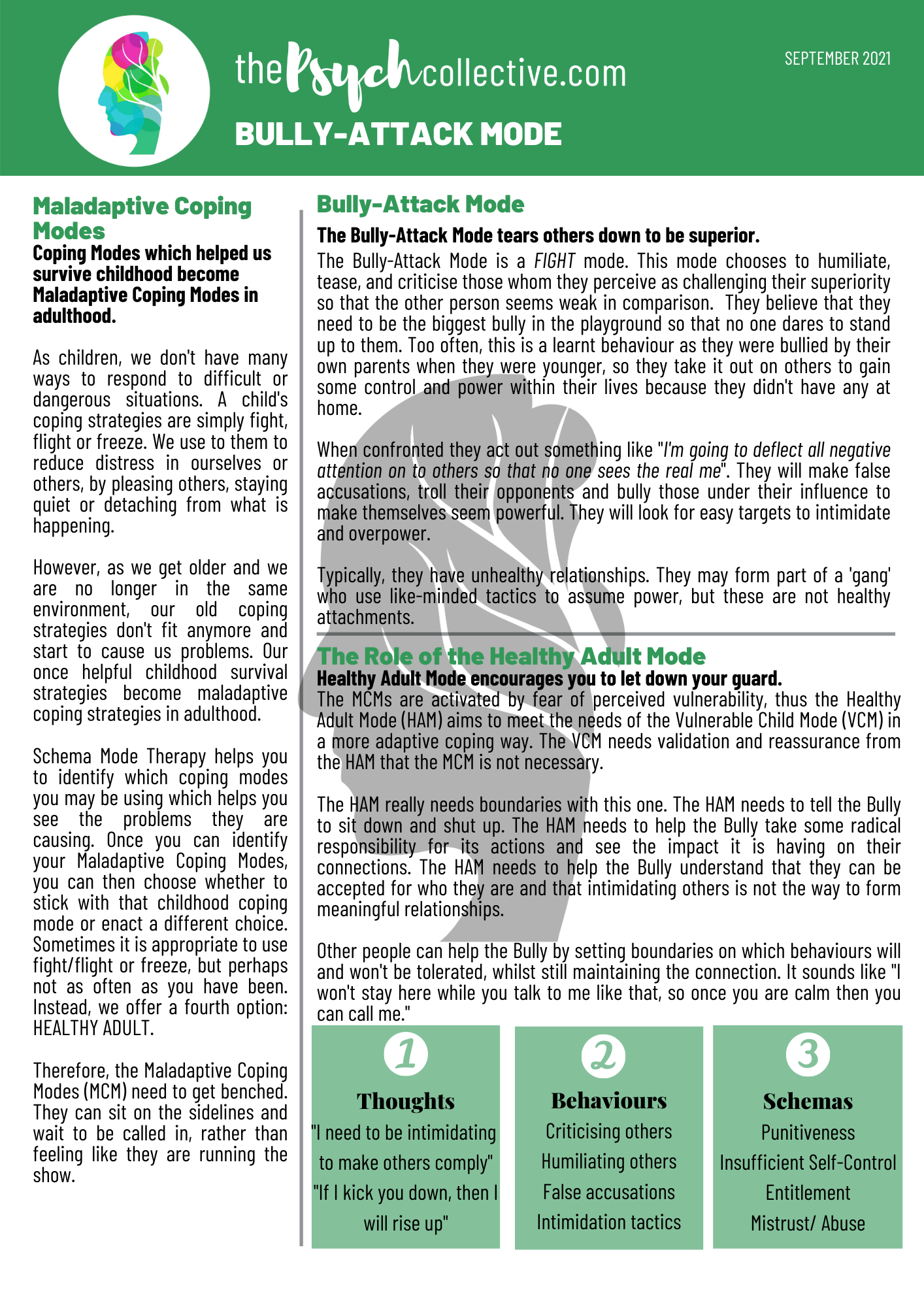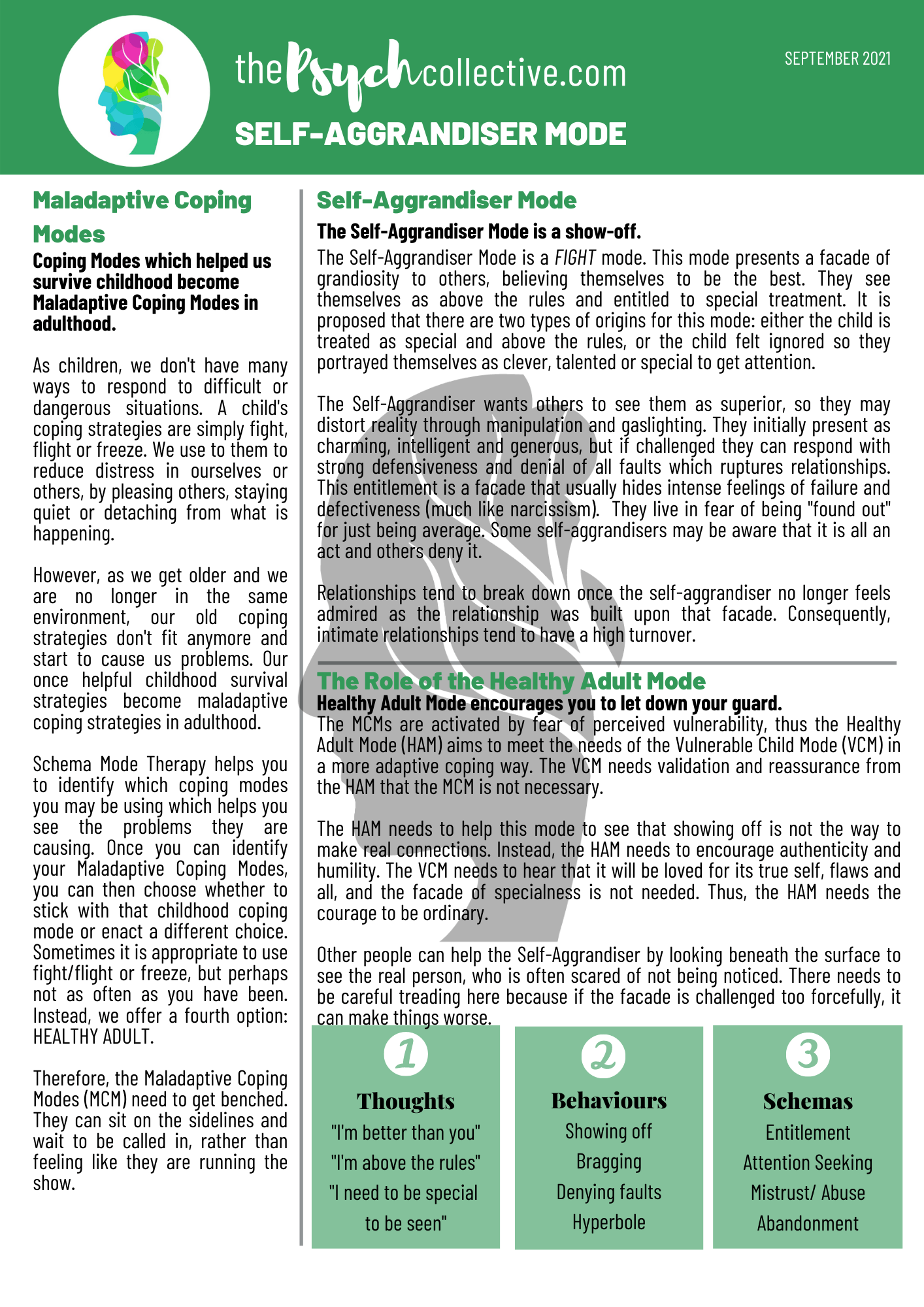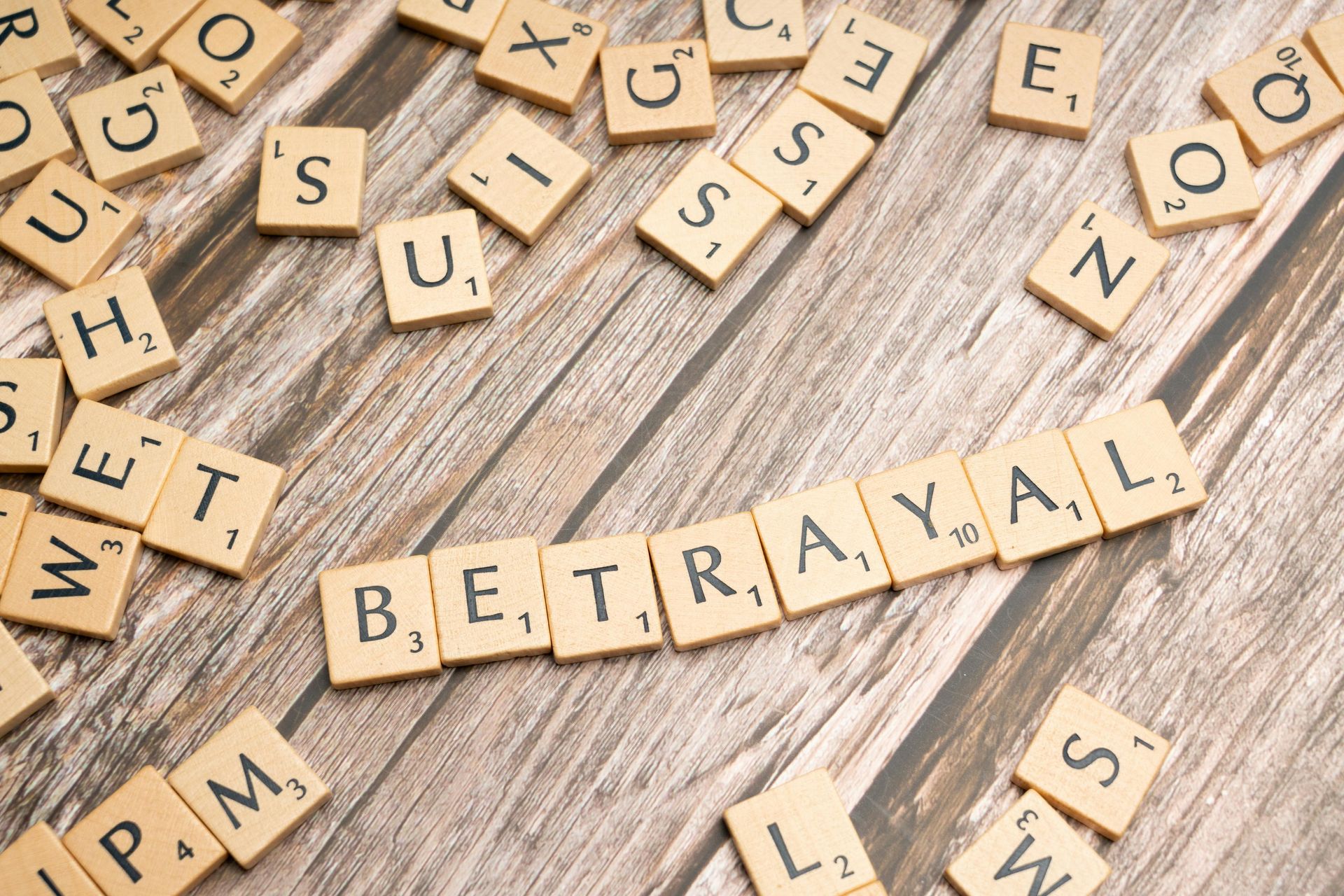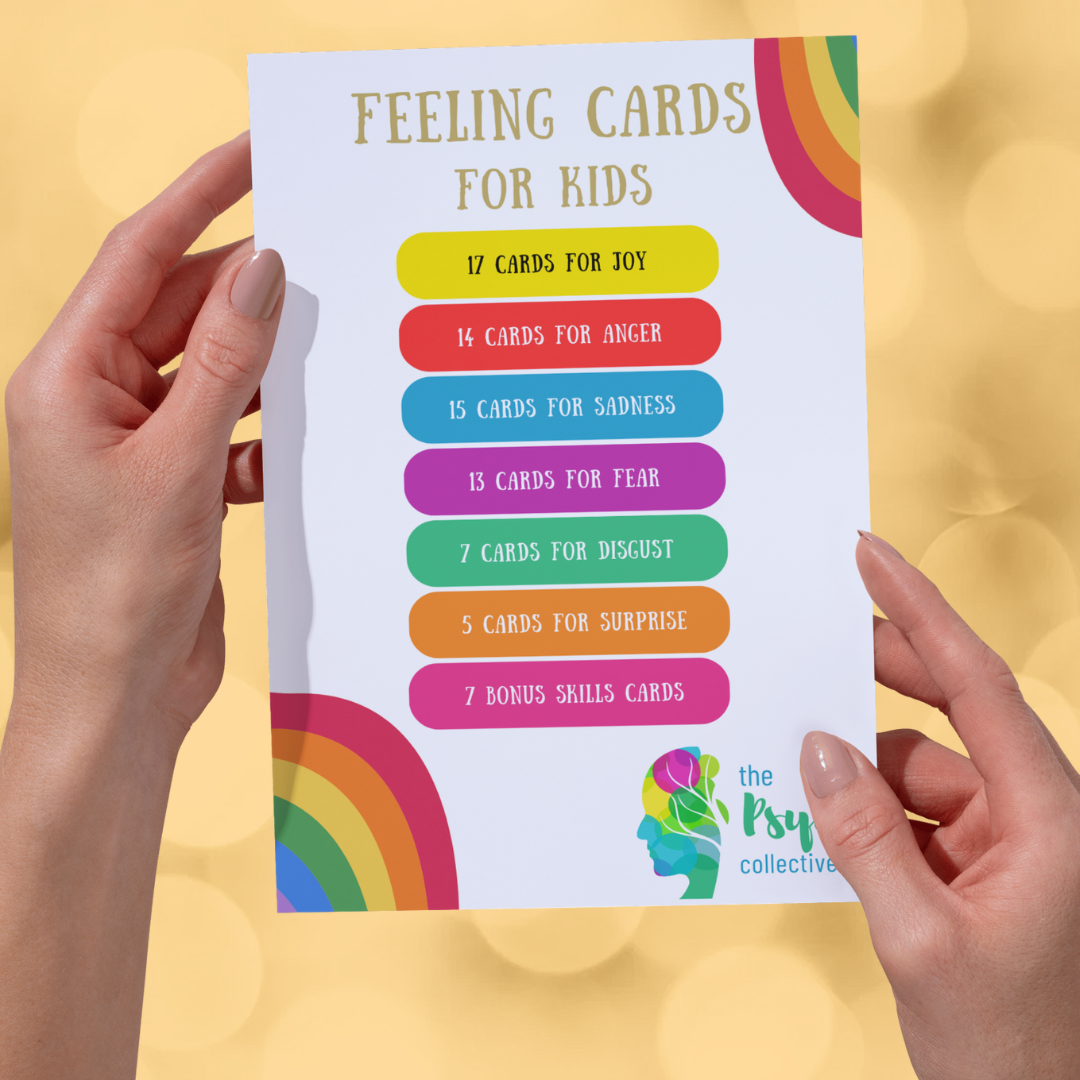Schema Coping Modes: FIGHT
Perfectionistic Overcompensator Mode
The Perfectionistic Overcompensator is a FIGHT Maladaptive Coping Mode (MCM). It operates from the belief that "If I get everything perfect then no one will doubt me or see my weaknesses". Unfortunately, this leads to burnout and increases feelings of shame and worthlessness.
In this video, Jess explains more about this mode. Download our handout below for more information.
Suspicious Overcontroller Mode
The Suspicious Overcontroller is a FIGHT Maladaptive Coping Mode (MCM) within Schema Therapy. It believes that no one can be trusted so you better do everything for yourself.
In this video, Jess explains more about this mode.
Bully Attack Mode
The Bully Attack is a FIGHT Maladaptive Coping Mode (MCM) within Schema Therapy. It aims to attack others and push them down so that other people don't discover the underlying vulnerability of the bully.
In this video, Jess explains more about this mode. Download our handout from our Resources page.
Self-Aggrandiser Mode
The Self-Aggrandiser is a FIGHT Maladaptive Coping Mode (MCM) within Schema Therapy. It is a defense mechanism that uses showing off and presenting a facade of grandeur to hide the underlying vulnerability., Sometimes people know that it is all an act, other people may be more in denial.
In this video, Jess explains more about this mode. Download our handout from our Resources page.
Share
Categories
About Our Resources
We offer actionable resources and teach real skills to help people make meaningful change in managing mental health issues through different modes depending on people's learning preferences including infographics, text, worksheets, handouts and video.
